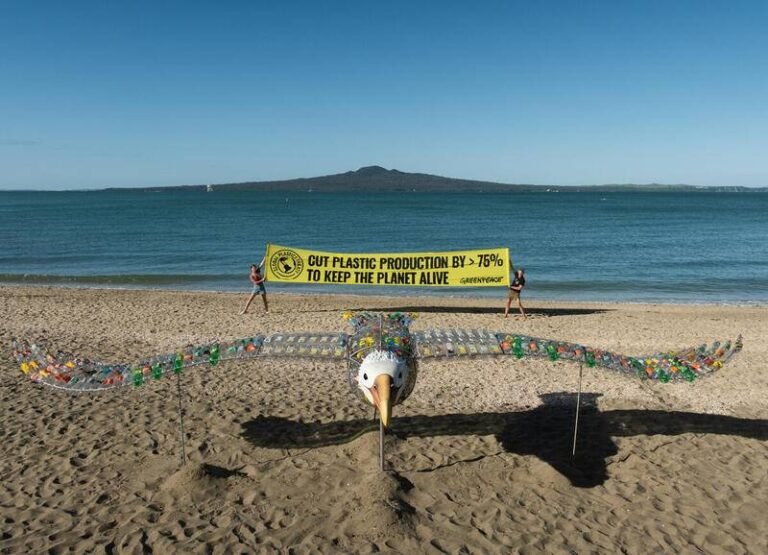The Urgency of Plastic Free July: Demands for Action Ahead of Global Plastics Treaty
Around 170 million people participate in Plastic Free July each year. It’s a month-long challenge to avoid as much single-use plastics as possible. The initiative aims to raise awareness about the detrimental effects of plastic pollution on our health and the environment.
Greenpeace, a leading environmental organization, highlighted the alarming statistic that we ingest about the equivalent of a credit card of microplastics every week. These tiny particles of plastic have been found in our blood and brains, raising concerns about long-term health impacts such as endocrine disruption, insulin resistance, decreased reproductive health, and cancer.
During Plastic Free July, Greenpeace called for action from corporations and governments to phase out single-use plastics, stop using harmful chemicals, and implement accessible reuse and refill systems. These demands are crucial in addressing the global plastic pollution crisis.
Global Plastics Treaty Negotiations
The second part of the fifth Intergovernmental Negotiating Committee (INC-5.2) session for a Global Plastics Treaty is scheduled to take place in Geneva, Switzerland, from August 5 to 14. Environmental organizations like Greenpeace have been advocating for an ambitious outcome from these negotiations.
A plastic bag policy alone can lead to a 47% reduction in bag litter on shorelines, while a 50% increase in refillables in coastal countries could significantly reduce the number of waste PET bottles entering the ocean. These measures demonstrate the tangible impact of policy changes on plastic pollution.
Call for a Binding Global Plastics Treaty
Over 60 global experts recently published open letters demanding a binding Global Plastics Treaty grounded in science, justice, and bold political will. The letters emphasize the need for legally binding targets to cap and reduce plastic production, phase out toxic additives, and protect human health.
The experts also call for independent scientific oversight, robust financing and compliance mechanisms, and structural inclusion of affected communities in treaty design and implementation. The urgency of addressing plastic pollution cannot be understated, as the costs of inaction are evident in health impacts and environmental degradation.
Scientific Community’s Call to Action
Professor Steve Fletcher, Editor-in-Chief of Cambridge Prisms: Plastics, highlighted the scientific consensus on the need for urgent action to govern plastics effectively. The upcoming INC-5.2 negotiations present a critical opportunity to secure a binding agreement that addresses plastic pollution across its entire lifecycle.
With over 100 countries backing an ambitious treaty, the focus now shifts to political courage and decisive action. The credibility and effectiveness of the Global Plastics Treaty depend on governments’ willingness to prioritize the health of the planet and its inhabitants over corporate interests.
As Plastic Free July continues to inspire individuals worldwide to reduce their plastic consumption, the push for systemic change through international agreements like the Global Plastics Treaty remains essential in combating the escalating plastic pollution crisis.
(An estimated 9 to 14 million tons of plastic waste ends up in the world’s oceans each year.)
*This equates to about 5 grams, and the figure has been disputed.

